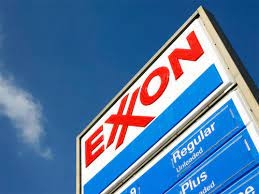
Energy giant Exxon Mobil has decided to desert its Russian oil and gas operations, which the company said was valued at more than $4 billion, over the Russian invasion of Ukraine. The company also announced suspension of all new investments in the country over the same issue.
Exxon will no longer manage big oil and gas drilling and production facilities on Sakhalin Island in Russia's Far East, putting the future of a projected multibillion-dollar LNG complex on the island in jeopardy.
"We deplore Russia's military action that violates the territorial integrity of Ukraine and endangers its people," the company said in a statement critical of the intensifying military attacks.
Dozens of other Western businesses, including Apple and Boeing, as well as BP PLC, Shell, and Norway's Equinor ASA, have either stopped doing business in Russia or declared plans to do so.
Exxon did not specify a timeline for its exit, nor did it comment on prospective asset writedowns, despite the fact that it is slated to meet with Wall Street analysts on Wednesday. In its most recent annual report, released in February, its Russia assets were valued at $4.055 billion.
Exxon began evacuating U.S. staff from Russia earlier this year, according to two people familiar with the situation. The exact number of employees that were evacuated remained unknown. According to one of the guys, the corporation dispatched a jet to Sakhalin Island to rescue employees.
Exxon handles three big offshore oil and gas fields for a consortium of Japanese, Indian, and Russian corporations, including Russia's Rosneft, from Sakhalin Island. The organisation has been pushing for an LNG export facility to be built at the location.
"Exxon's Russian business is relatively small in the context of its wider enterprise, so it does not have the same significance as it has to BP or TotalEnergies, if it were to abandon its Russian assets," said Anish Kapadia, a director at energy and mining researcher Pallissy Advisors.
The firm has been exploiting Russian oil and gas reserves since 1995 and in recent days has been put under pressure to sever connections with Russia in the aftermath of Moscow's invasion of Ukraine. Russia's invasion of Ukraine is referred to as a "special operation."
According to a project description on Exxon's website, the Sakhalin facilities, which Exxon has operated since production began in 2005, are one of the largest single direct investments in Russia. The project has lately pumped over 220,000 barrels of oil per day.
A representative for Japan's Sakhalin Oil and Gas Development (SODECO), which holds a 30 per cent share in the Sakhalin-1 project, said the company is seeking to check facts of Exxon's announcement, and that it will keep an eye on the Russia-Ukraine situation and determine what to do in the future.
According to a Japex representative, state-owned oil company Japan Petroleum Exploration Co, which owns 15.285 per cent of SODECO, is also looking into the facts of Exxon's statement and will consult with its partners to determine a future strategy.
(Source:www.channelnewsasia.com)
Exxon will no longer manage big oil and gas drilling and production facilities on Sakhalin Island in Russia's Far East, putting the future of a projected multibillion-dollar LNG complex on the island in jeopardy.
"We deplore Russia's military action that violates the territorial integrity of Ukraine and endangers its people," the company said in a statement critical of the intensifying military attacks.
Dozens of other Western businesses, including Apple and Boeing, as well as BP PLC, Shell, and Norway's Equinor ASA, have either stopped doing business in Russia or declared plans to do so.
Exxon did not specify a timeline for its exit, nor did it comment on prospective asset writedowns, despite the fact that it is slated to meet with Wall Street analysts on Wednesday. In its most recent annual report, released in February, its Russia assets were valued at $4.055 billion.
Exxon began evacuating U.S. staff from Russia earlier this year, according to two people familiar with the situation. The exact number of employees that were evacuated remained unknown. According to one of the guys, the corporation dispatched a jet to Sakhalin Island to rescue employees.
Exxon handles three big offshore oil and gas fields for a consortium of Japanese, Indian, and Russian corporations, including Russia's Rosneft, from Sakhalin Island. The organisation has been pushing for an LNG export facility to be built at the location.
"Exxon's Russian business is relatively small in the context of its wider enterprise, so it does not have the same significance as it has to BP or TotalEnergies, if it were to abandon its Russian assets," said Anish Kapadia, a director at energy and mining researcher Pallissy Advisors.
The firm has been exploiting Russian oil and gas reserves since 1995 and in recent days has been put under pressure to sever connections with Russia in the aftermath of Moscow's invasion of Ukraine. Russia's invasion of Ukraine is referred to as a "special operation."
According to a project description on Exxon's website, the Sakhalin facilities, which Exxon has operated since production began in 2005, are one of the largest single direct investments in Russia. The project has lately pumped over 220,000 barrels of oil per day.
A representative for Japan's Sakhalin Oil and Gas Development (SODECO), which holds a 30 per cent share in the Sakhalin-1 project, said the company is seeking to check facts of Exxon's announcement, and that it will keep an eye on the Russia-Ukraine situation and determine what to do in the future.
According to a Japex representative, state-owned oil company Japan Petroleum Exploration Co, which owns 15.285 per cent of SODECO, is also looking into the facts of Exxon's statement and will consult with its partners to determine a future strategy.
(Source:www.channelnewsasia.com)














